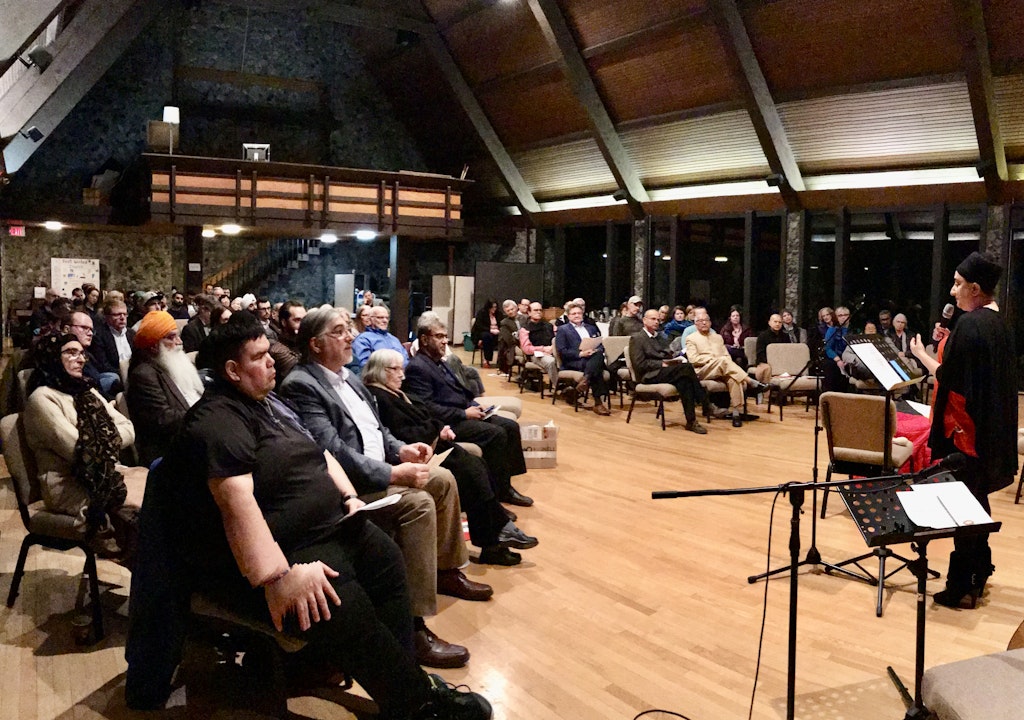The Baha’i Faith, a relatively recent world religion founded in the mid-19th century, elucidates a profound understanding of spiritual and social unity grounded in the teachings of Baha’u’llah. Central to Baha’i thought is the concept of the “Return of God’s Love,” an idea that encapsulates the transformative power of divine affection and mercy as they manifest within the human experience. This article seeks to explore the multifaceted dimensions of this theme, drawing upon the core tenets of Baha’i teachings while elucidating its implications for individuals and society at large.
At the heart of the Baha’i Faith lies the belief in the oneness of God and the interdependence of humanity. The notion of God’s love is transcendent, yet it is also immanently accessible to those who earnestly seek it. Baha’u’llah, the founder of the Baha’i Faith, emphasizes that divine love serves as a guiding force, fostering a sense of unity among all people, irrespective of background or belief. The Return of God’s Love symbolizes not only the return of humanity to an inherent state of righteousness and compassion but also the divine promise of forgiveness and redemption offered to all souls.
In order to fully comprehend the Baha’i perspective on the Return of God’s Love, it is essential to engage with several key concepts: divine love itself, human potential, the transformative power of forgiveness, the unity of mankind, and the practical applications of these teachings.
The Nature of Divine Love
Divine love, as articulated in Baha’i teachings, extends beyond mere affection; it encompasses an encompassing compassion and a fervent desire for the spiritual and moral advancement of humanity. Baha’u’llah expresses that God’s love is an inexhaustible source of strength that permeates existence. This love offers individuals a spiritual sustenance, guiding them through trials and tribulations. According to Baha’i teachings, divine love is not conditional or selective but universally bestowed upon all of creation, encouraging a sense of hope and belonging.
The Potential of Humanity
Baha’i teachings assert that each human being possesses innate spiritual potential, which can be realized through an active engagement with divine principles. The Return of God’s Love is intricately linked to the awakening of this potential. Each individual is seen as a reflection of the divine attributes, and as such, is capable of manifesting qualities such as compassion, justice, and love. The journey toward spiritual development necessitates the application of these virtues in daily interactions and larger societal contexts, reinforcing the belief that personal transformation leads to collective change.
The Transformative Power of Forgiveness
Forgiveness is a recurring theme within Baha’i thought and serves as a critical component in the Return of God’s Love. Forgiveness not only facilitates personal healing but also nurtures communal harmony. Baha’u’llah emphasizes the importance of releasing grievances and fostering reconciliation, underscoring that holding onto animosities hinders one’s capacity to receive and share divine love. The practice of forgiveness is posited as an essential step towards spiritual upliftment, allowing individuals to attain a state of inner peace. Through forgiveness, one cultivates love for others, creating a ripple effect that promotes broader social cohesion.
The Unity of Mankind
The Baha’i principle of the oneness of humanity serves as a cornerstone for understanding the Return of God’s Love. This tenet posits that all people, regardless of ethnicity, nationality, or faith, are fundamentally interconnected and deserving of love and respect. The return to this understanding is seen as pivotal to overcoming the divisions that plague society. By recognizing our shared humanity, individuals can align themselves with the divine will, embracing a worldview that prioritizes unity and equality. The manifestation of God’s love through our actions fosters an environment where peace and collaboration can thrive, transcending the boundaries set by prejudice and intolerance.
Practical Applications of Baha’i Teachings
In a world rife with challenges, the Baha’i teachings offer practical frameworks for individuals and communities to embody the concept of the Return of God’s Love. Engaging in acts of service, fostering inclusive dialogues, and promoting social justice initiatives are tangible expressions of divine love in action. The Baha’i community actively encourages its members to participate in efforts that enhance the welfare of humankind, reflecting the belief that personal spiritual development is inextricably linked with the betterment of society. Through education, advocacy, and community-building endeavors, Baha’is aim to illuminate the path to a harmonious global society.
Conclusion
The Return of God’s Love, as articulated through Baha’i teachings, is a profound call to action that invites individuals to participate in the ongoing evolution of humanity. By embracing divine love and fostering unity, individuals can contribute to a transformative societal shift. As the world grapples with myriad challenges, the principles of this faith provide a beacon of hope, illuminating pathways toward reconciliation, forgiveness, and collective flourishing.
Ultimately, the Baha’i perspective on the Return of God’s Love serves as a reminder of the potential for spiritual awakening within each individual. It beckons us toward higher aspirations, urging us to cultivate an ever-deepening understanding of love and unity, enabling humanity to rise together towards a more just and peaceful world.
